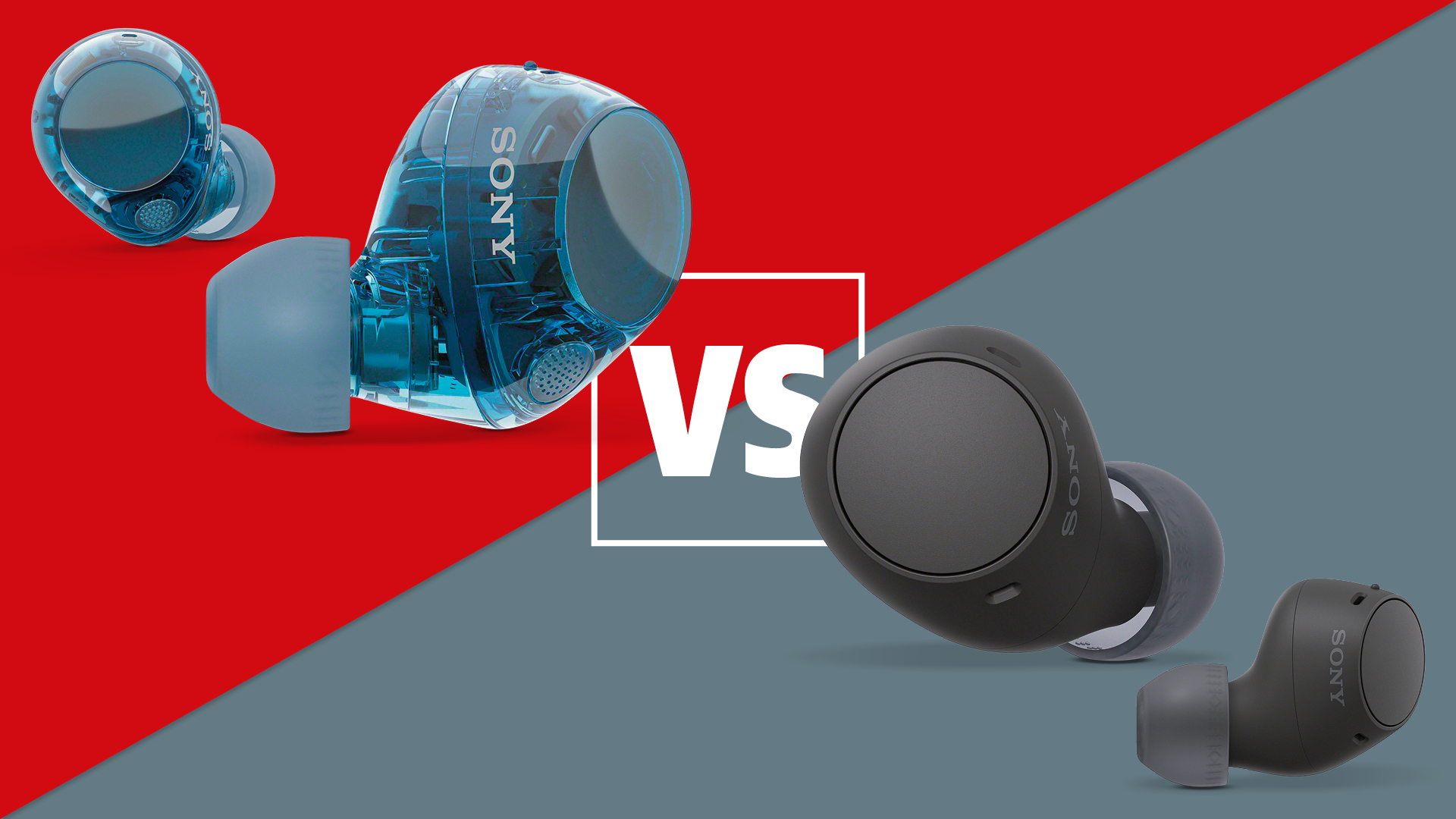What Hi-Fi? Verdict
All round improvements are effective for the PSB M4U 8 MKII – but its rivals have got stronger too…
Pros
- +
Decent sound performance and ANC
- +
Audio calibration
- +
Improved battery life
Cons
- -
Some exceptionally strong rivals
Why you can trust What Hi-Fi?
The PSB M4U 8 MKII are, you won’t be shocked to read, the follow up to the Canadian firm’s first foray into premium noise-cancelling wireless headphones, the M4U 8. The principles of the overall package remain the same, unsurprisingly, but there have been a number of improvements and specification changes that, PSB hopes, will put it among the class leaders in what is an extremely strong field.
Price
The M4U 8 MKII are not cheap, at (according to the PSB website) an official retail price of £349 / $399 / AUS$599. This market sector includes strong alternatives from heavy-hitting brands such as AKG, Bowers & Wilkins, Beats, Bose, Sennheiser, and – most intimidating of all in the premium wireless noise-cancelling headphone market – perennial Award-winners Sony.
But that ‘official’ price is a slight red herring here. As always with such products, it is well worth searching around for the best price you can get; in the UK we have seen the PSB M4U 8 MKII available for more than £100 less than the official price, and generally on sale for £299.
Features and build
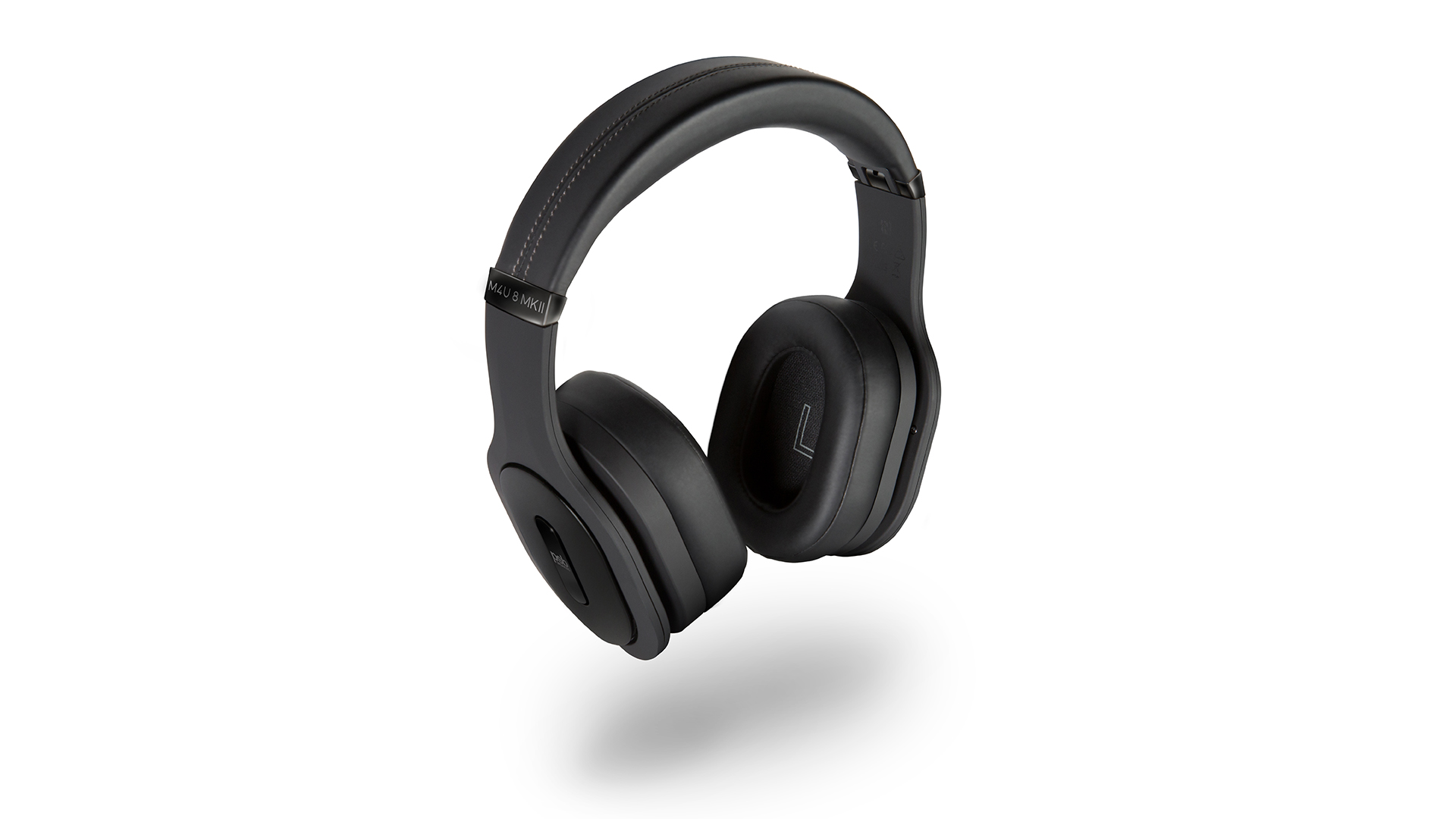
Like the original, the PSB M4U 8 MKII are solidly put together using mostly premium plastics, with a bit of chrome for highlights. They lean more towards the functional side of design, rather than putting any great emphasis on form and finish, but they feel perfectly well made for the price.
As with the original headphones, PSB has eschewed the current trend for swipes and gestures on a touch-sensitive earpad, and keeps things traditional with rocker switches and buttons on the right earcup to control pretty much all the functions of the unit.
There are three sliders, one for volume up and down, one for powering on and activating the noise cancelling, and one for track skipping and fast-forwarding/rewinding. The first of these also pushes in to allow in extraneous noise (hearing a train announcement, say), and the bottom one pushes in for play/pause and answering a call. All perfectly standard (a few years ago at least) and often preferable to the more modern swiping system that many rivals have graduated to.
The buttons do feel fairly similar, so on initial use there is a bit of confusion over which button we are pressing, but spend a bit of time playing around with the controls and you should have no problem accessing the correct command.
There is also a little push button that activates and deactivates the Bluetooth capabilities.
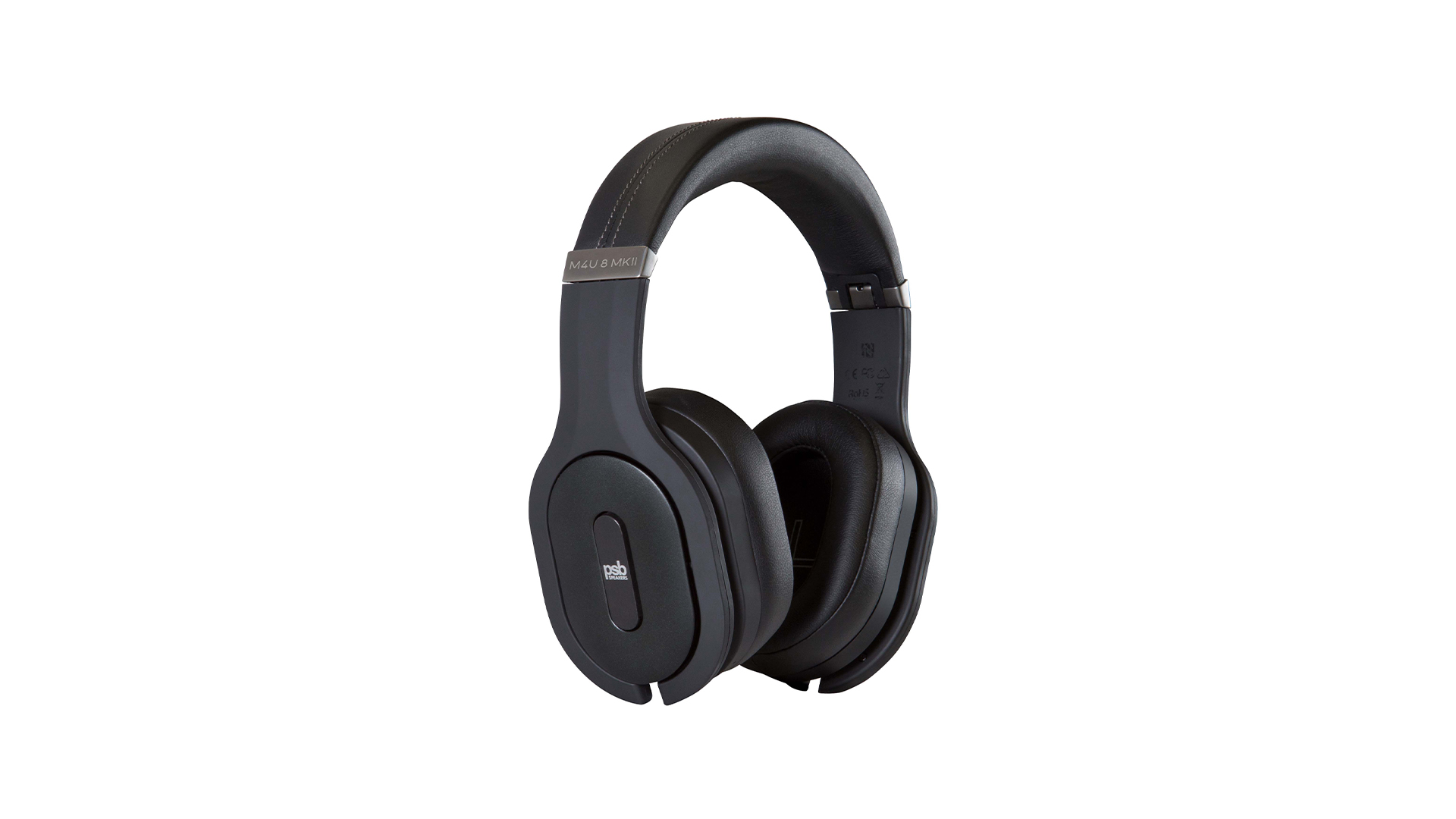
Design style Over-ear
Bluetooth version 5.0
Noise cancellation Yes
Battery life 25 hours (18 ANC)
Touch controls Yes
Weight 342g
Finishes x 1
In the box, along with the M4U 8 MKII, you get a hard, leather-look carrying case, a USB-A to USB-C charging cable, a 6.3mm (quarter-inch in old money) adapter, a twin-pronged adapter for airplanes, and a 3mm headphone cable for listening directly to a source. Using this, the headphones need no power, so it’s a useful back-up option if the improved 18-hour charge isn’t enough, or you forget to charge them up for some reason.
All of which is fairly standard, and all of which – with the exception of that more powerful battery providing longer playing time – came with the original M4U 8.
PSB claims to have made improvements to the sound from the original, as one would expect; but the main change is the inclusion of custom audio calibration that gives the user a bespoke sound setting provided by an app (iOS and Android). This sends beeps of varying frequency to your ears, the app requiring you to acknowledge perception of these (and, of course, taking into account those sounds you do not hear).
Comfort and noise-cancelling
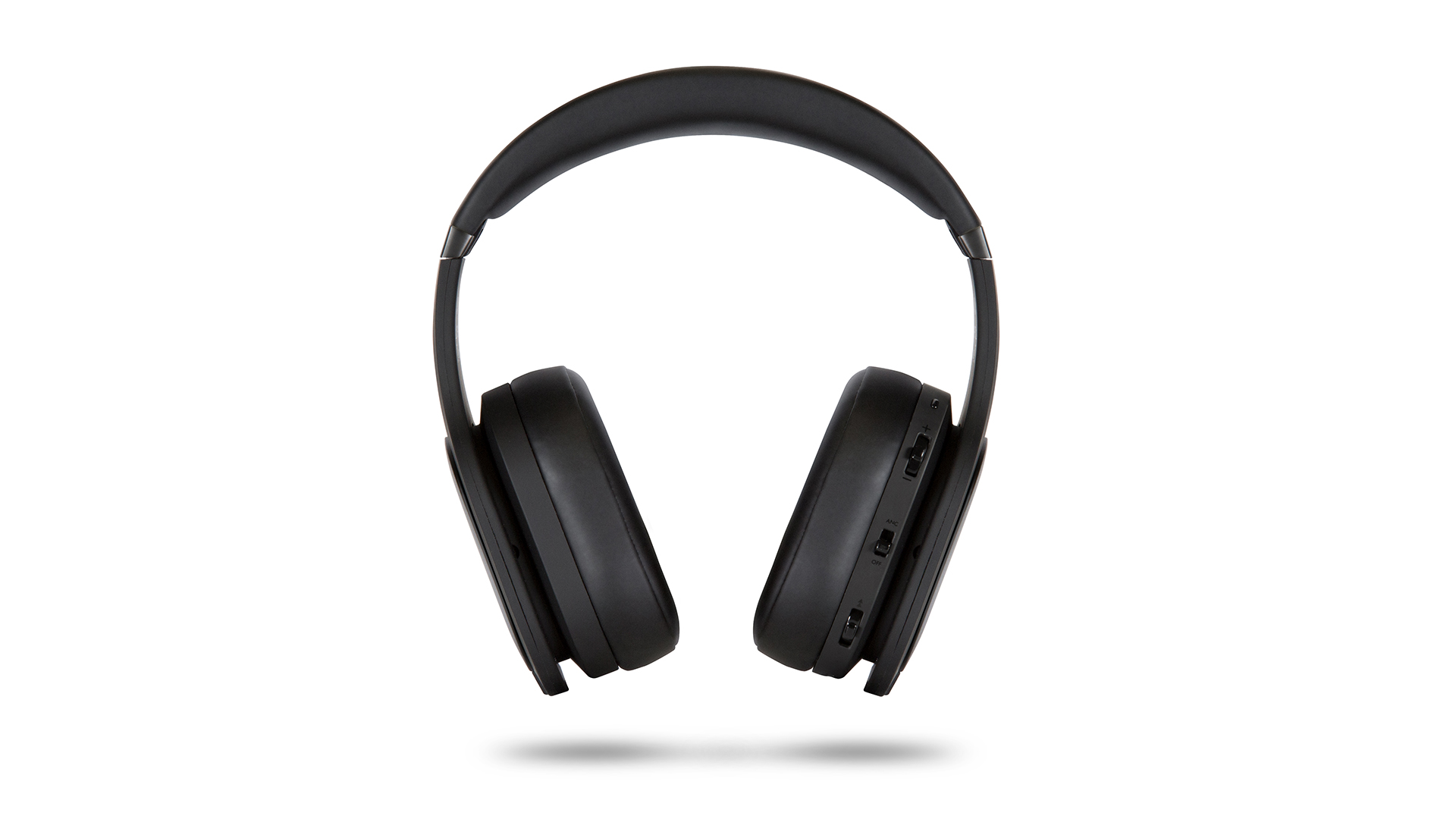
As with the originals, the M4U 8 MKIIs are an on-ear rather than fully over-ear design. The clamping force is fairly strong, but we find that, if you experiment with the headband-expanding mechanism carefully, they can be worn in comfort for lengthy sessions. If you get this wrong, though, they can become a touch uncomfortable – so take your time getting it right.
Once we get used to the button positioning, we get over the problem with the controls feeling very similar, so mistakes become less frequent in time.
There are, however, a couple of occasions when we struggle to get the headphones to connect with our phone after we have been using them on our laptop – so we have an irritating few minutes turning it all off and on again on the train on the way home. That has happened only a couple of times, however, and doesn’t take too long to resolve.
The noise-cancelling is functional and competent without being class leading. It does well on the daily commute, blocking out most unwanted noise on the train – and the facility to allow in extraneous noise with the push of the top button saved us from getting stranded on our train on a couple of occasions.
Sound
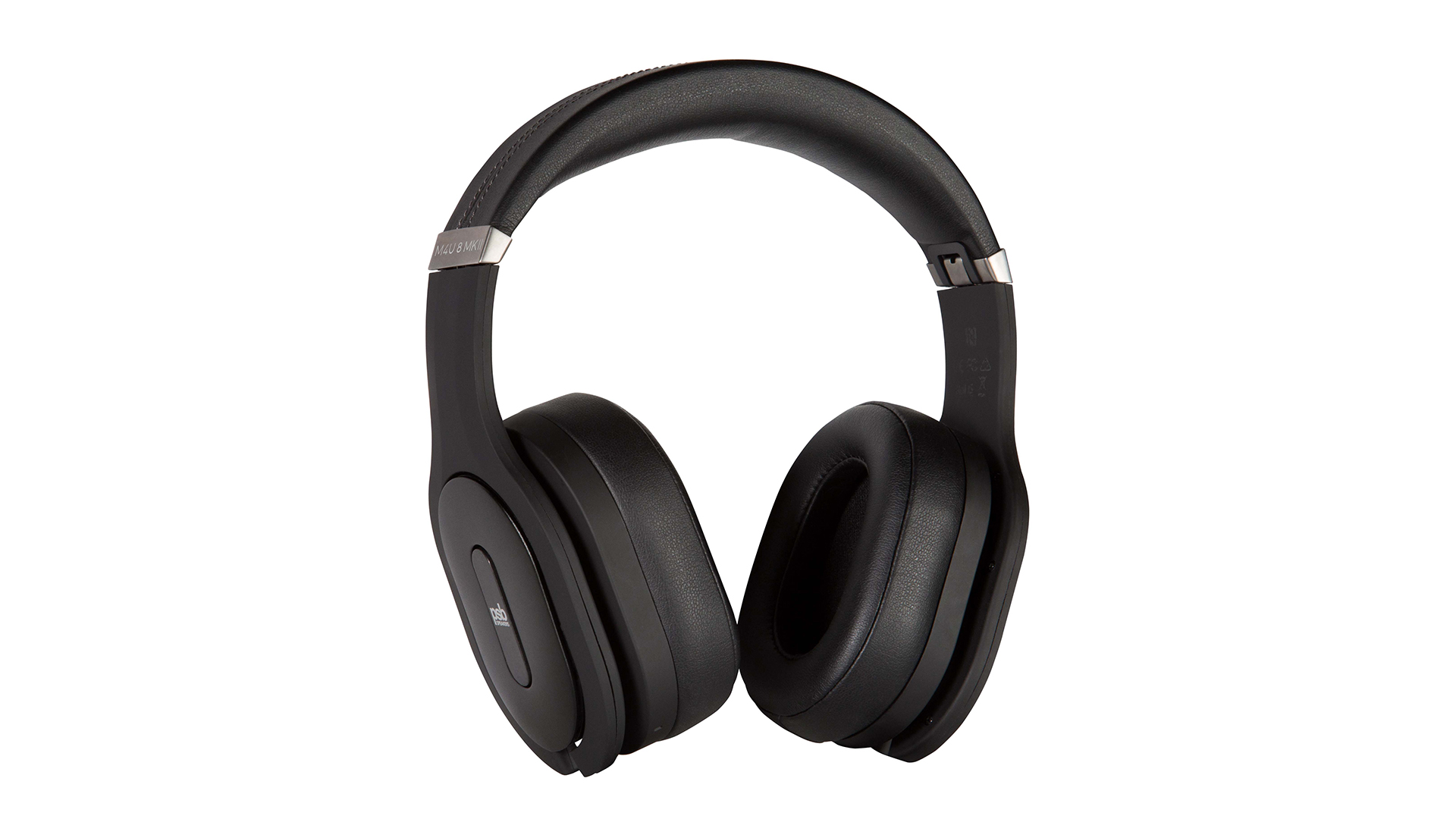
The first thing to be said about the M4U 8 MKII is that PSB has succeeded in improving the original headphones. Those were a decent four-star offering, and deserved an audition – and that can certainly still be said for the MKIIs. They produce a more lively and cleaner sound than the already competent originals.
As is to be expected, the wired connection provides the better sound quality – but that really isn’t the point of headphones such as these, so it’s the wireless performance that we concentrate on.
And here the PSB M4U 8 MKII are good performers. They produce a nice, clear midrange with a good soundstage and no part of the musical mix overly prominent. When we listen to them (after a decent running-in period) straight out of the box, there is perhaps a tendency to brightness in poorer recordings – The Undertones’ Teenage Kicks on Spotify comes across veering towards the strident without ever quite becoming unbearable. And there can be, on certain tracks, a suggestion of excess bass.
A quick trip to the bespoke sound set-up on the app calms most of these issues down, however, so we would certainly go through the process if you invest in the M4U 8 MKIIs.
With the set-up done, Nina Simone’s I Wish I Knew How… comes across nice and snappy when the snare kicks in in the right channel. Then Nina’s voice comes across clear and centred, and each instrument in the band is easily picked out and placed on the soundstage.
We turn to Tindersticks and Tiny Tears, and the track is suitably atmospheric.
The headphones do come across as rather straight-laced however – we wouldn’t quite go as far as to say ‘uptight’, but they could certainly be more expressive. Dynamically, compared with the very best in this sector (and the best are truly excellent, of course) they are a touch plodding.
And that ‘very best in this sector’ is of course the major problem for the PSB M4U 8 MKIIs. Sony’s WH-1000XM4, available for just a little more money, are simply better in pretty much every department. Fit, finish, noise-cancelling and – crucially – overall sound quality. If the Sony’s didn’t exist, the PSBs could stand up as a fine choice; but there can be no getting away from the fact that, at this price, we would find the minimal extra budget and go for the Sonys every time.
Verdict
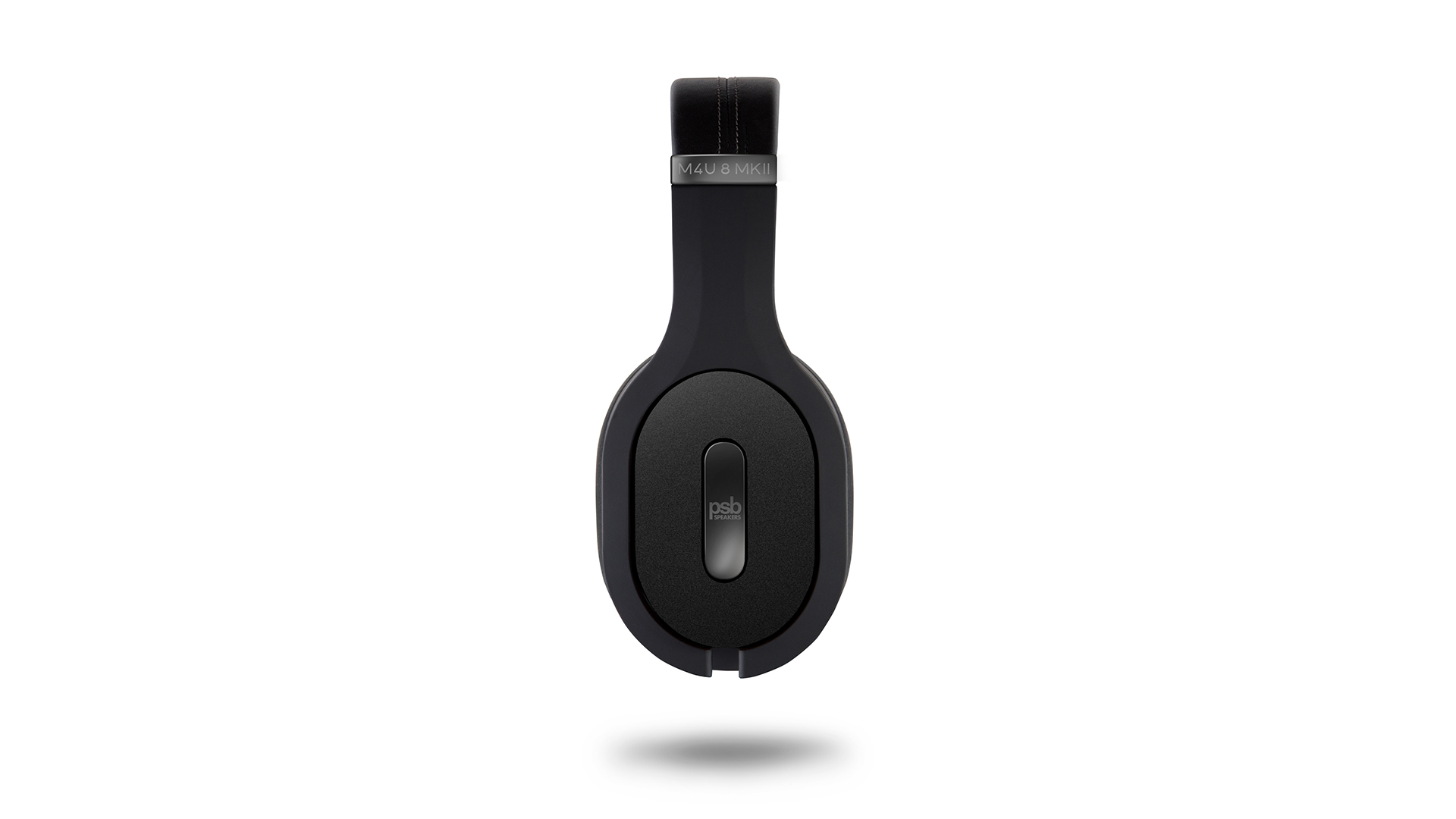
The PSB M4U 8 MKII suffer from the same major issue that their unfortunate forebears did: the huge strength of their major rivals.
Taken in isolation, these are very competent, good sounding noise-cancelling headphones. And they do a fine job in every department. They are rather a jack of all trades, though, compared with the Sony Award winners, which have proved to be masters of all for quite a time now.
SCORES
- Sound 4
- Comfort 4
- Build 4
MORE:
Read our review of the Sony WH-1000XM4
Also consider the Bose Noise Cancelling Headphones 700
Read our Sennheiser Momentum 3 Wireless review
Best noise-cancelling headphones 2022: ANC headphones for all budgets
What Hi-Fi?, founded in 1976, is the world's leading independent guide to buying and owning hi-fi and home entertainment products. Our comprehensive tests help you buy the very best for your money, with our advice sections giving you step-by-step information on how to get even more from your music and movies. Everything is tested by our dedicated team of in-house reviewers in our custom-built test rooms in London, Reading and Bath. Our coveted five-star rating and Awards are recognised all over the world as the ultimate seal of approval, so you can buy with absolute confidence.

